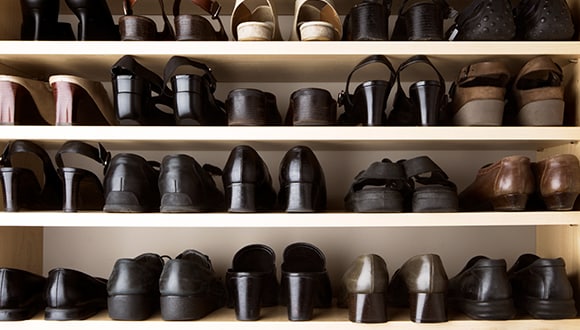OCD: myths vs facts
OCD is not about being incredibly tidy; it’s a misunderstood mental health condition, which affects around 500,000 Australians.
Helen Foster
June 2018
Many of us may have an incorrect image of obsessive compulsive disorder (OCD). We might think of the kind of person who has to have the cans in their cupboard lined up in a certain way, or who won’t touch anything without using hand sanitiser. We may use the term to jokingly describe our tidy friends, but OCD can be a serious anxiety disorder.
“Obsessive compulsive disorder is far more than that,” explains Suzanne Leckie, psychologist and Help Centre manager for the mental health charity SANE.
“It’s not a lifestyle choice, it’s an illness that can seriously impact on someone’s life.”
OCD has 2 components. The first is that the person has obsessive thoughts often involving potential harm to themselves or others from sources such as germs, violence or accidents. Secondly, they develop compulsions, which are mental or physical rituals that they believe will prevent these events from coming to pass.
“So, for example, someone might start to worry that harm is going to come to their child,” says Leckie. “However, if they count to a certain number or tap the doorframe a set number of times they can prevent this.”

The effects of OCD
At its worst, OCD can be debilitating, with people spending hours repeating the rituals they think keep them or their loved ones safe.
“There are so many symptoms associated with my OCD, it’s hard to know what to tell you about,” says Tim, 37, from the Macedon Ranges, Victoria.
“I must wear certain clothes or something bad might happen. Or I have to eat certain foods, or I worry my brain function might start to decline. I obsess about the fact that the sun or computer screens might damage my eyes so I wear sunglasses.
“The thought patterns and compulsive behaviours are constant, making it hard to concentrate and leaving me drained. I wish people understood how many ways compulsions can manifest. The overt physical compulsions, like cleaning or checking things, are only one aspect.”
What causes OCD?
While it’s not known exactly what triggers OCD, it can run in families. This may mean there’s a genetic component to it, or, simply, that children grow up in environments where they learn this coping behaviour.
“It can also be linked to past stress or trauma, particularly in childhood, where people use these behaviours to try and soothe themselves,” says psychotherapist Dan Auerbach from Associated Counsellors and Psychologists Sydney.
Can OCD be treated?
A common treatment for OCD is an approach called Exposure and Response Prevention (ERP). “You work very closely with a mental health professional to break the link between your thoughts and the need to complete that ritual to prevent them,” says Leckie.
Around 70% of people find ERP helps their symptoms.
“It’s definitely helped me,” says Tim. “I still get obsessive thoughts but no longer have to appease all of them with a compulsion.”
The downside is it isn’t always that easy to access as it’s quite a specialised technique. If you want to know more, ask your GP.
Cognitive behavioural therapy (CBT) can also help with OCD as it works on changing habits. Once you have your specific issues under control, psychotherapy can help you explore where they come from.
“It’s not as widely studied as the other therapies as it’s harder to standardise the treatment, but it can give excellent long-lasting results,” says Auerbach. Again, ask your GP for advice.
If you’re unable to see a mental health professional face-to-face, there are a few online CBT courses that can help teach you some key anxiety coping skills, including Mindspot, E.Couch and This Way Up.
Anti-depressant medications can also be used. “They don’t actually tackle the condition, but they can help get you into a place where you feel enough in control of your thoughts and feelings to engage in other types of treatment,” says Leckie. Medication alone can reduce symptoms, the obsessions or compulsions, by as much as 60%.
Whichever form of treatment you access, it’s important to get the support of family and friends. Understanding the condition will help them to help you.
related artciles
TREATING DEPRESSION: A NEW APPROACH
One in five Australians is living with depression. Online therapy is emerging as an effective and accessible treatment option.
HOW TO MANAGE STRESS
Reclaim calm with these expert-approved approaches to dealing with stress and anxiety.
MENTAL HEALTH: A HELPING HAND
How to help a family member or friend through a mental health episode.
POSITIVELY HEALTHY
Could an optimistic approach improve an injury or help you reach health goals? A growing body of research says yes.